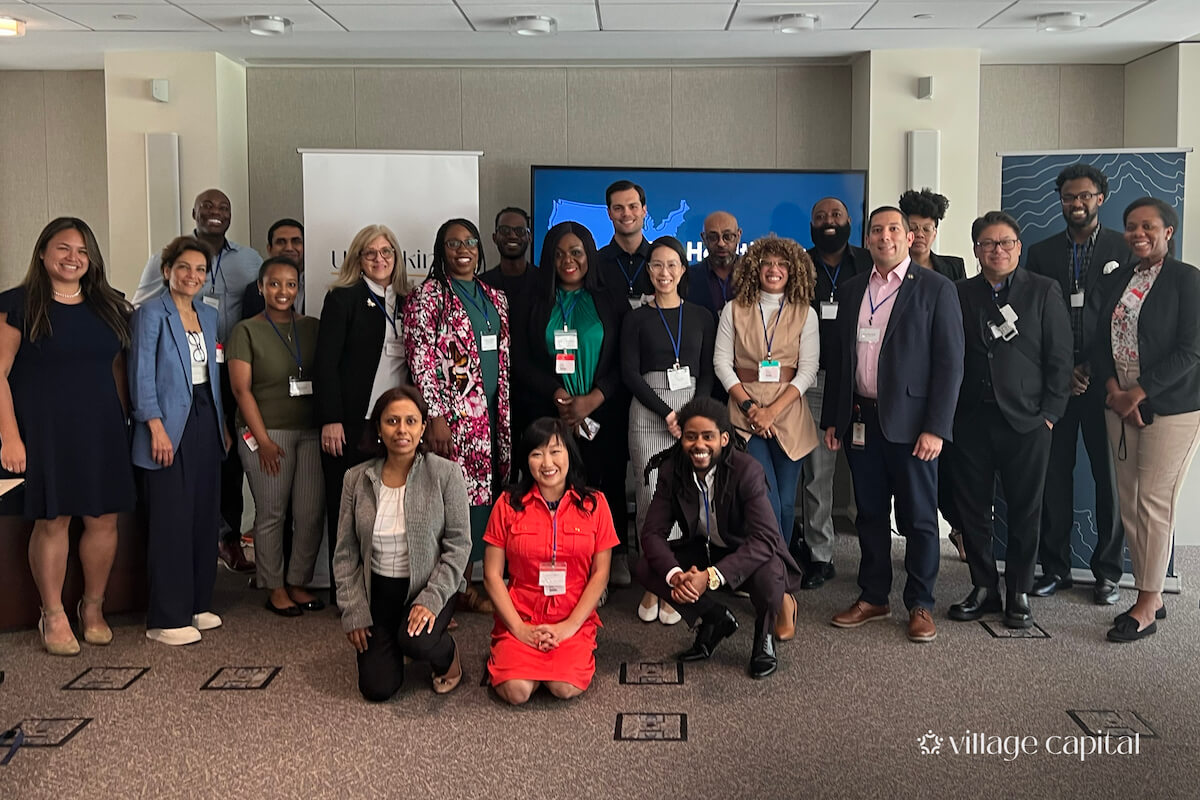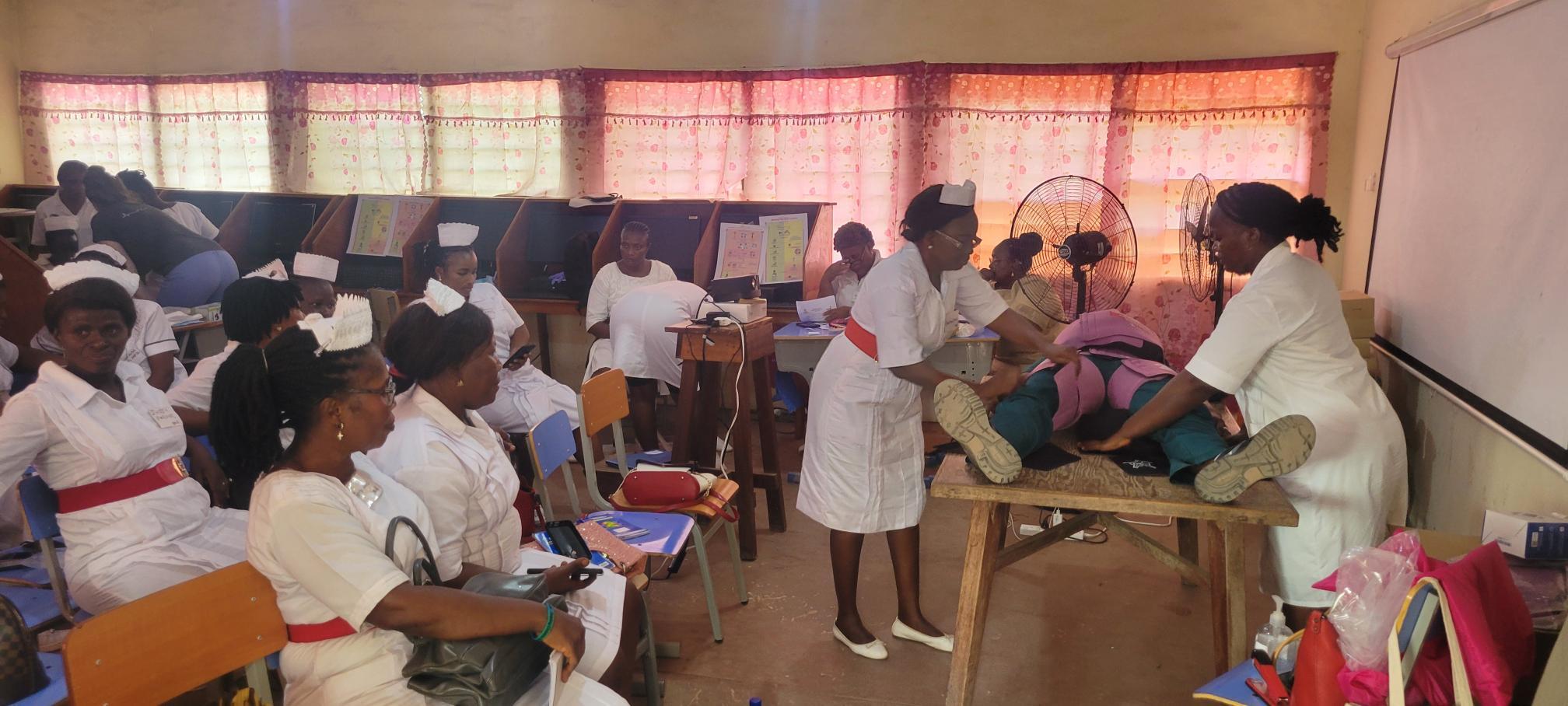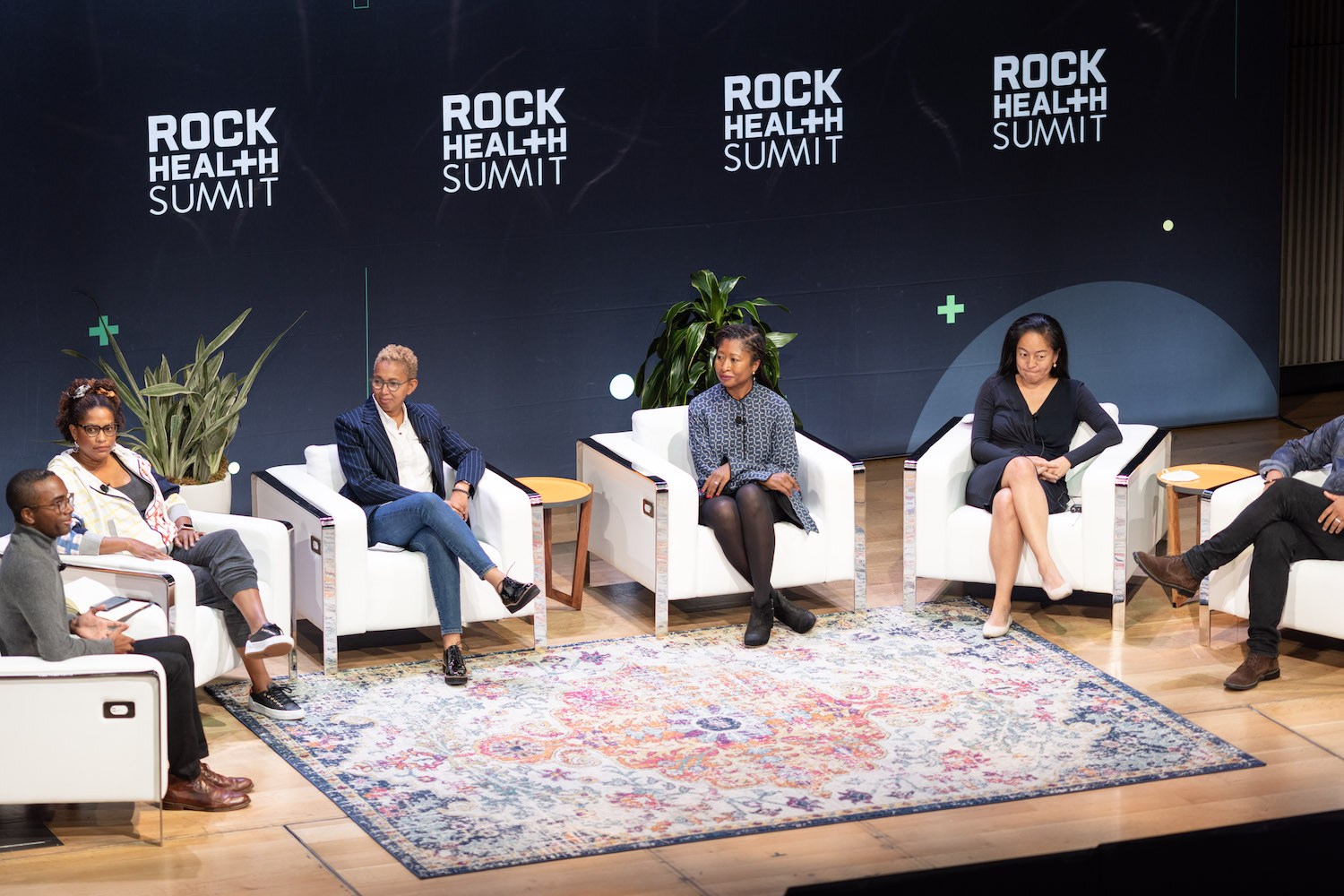Editor’s note: This article is sponsored by Johnson & Johnson Impact Ventures, which supports ImpactAlpha’s Investing in Health coverage. In partnership with J&J Impact Ventures, ImpactAlpha is exploring the market potential of impact investments in purpose-driven entrepreneurs working to improve health outcomes for underserved communities around the world.
A digital health revolution is transforming healthcare with the promise of expanding health access for all. The market is massive: global digital health was worth an estimated $181 billion in 2020 and is expected to grow 16.5 percent each year through 2027.
New tools and technologies hold great potential for delivering better health outcomes to people around the world. That’s why Johnson & Johnson is forging a new way to advance social innovation through impact investing: to foster a vibrant digital health ecosystem by partnering with technologists, entrepreneurs, community builders and investors. These visionaries leverage diverse perspectives to discover and nurture ideas to address the challenges that disproportionately impact people in underserved communities.
Technology for good
More isn’t necessarily better when it comes to the rise of digital health. Fresh approaches to health delivery are exciting, but innovation demands an intentional approach to ensure no one is left behind. Digital health advances must reach diverse communities and remote populations, not merely those already plugged in and online.
Health apps that make services faster and more efficient for those already receiving quality care can offer convenience. But at Johnson & Johnson Impact Ventures (J&J Impact Ventures), we are working to dig deeper—focusing on social enterprises that shift paradigms of care and can transform lives.
Human-centered
It’s obvious that tech-for-good goals will require ensuring that new digital health tools actually help patients. Perhaps less obvious is that the impact on health workers will be just as key to ensure they help health workers, rather than creating more bureaucracy and contributing to burnout. Many commonly used digital health platforms, like clunky electronic health records, for example, can actually make health providers’ work more difficult, becoming an obstacle—rather than an aid—to delivering quality care.
A strong focus on design thinking and building intuitive, simple, accessible online experiences must integrate the real-world needs and challenges facing caregivers, patients, and families into technology. That’s the driving philosophy behind Patients Know Best, a United Kingdom-based health impact startup that connects patient data and electronic medical records. The social enterprise and technology platform pulls patient data, from appointments to test results to health monitoring tools, into a single secure health record that patients and health workers can easily access. In the decade since it launched, Patients Know Best has attracted more than 5 million users.
Ideally, good digital health design can increase engagement and lead to better health outcomes. Health tech must work for health workers—not be imposed upon them. The need is clear: a healthcare system built for everyone, on and offline.
Upskilling caregivers
This nexus of health innovation and health equity is exactly where J&J Impact Ventures focuses its work. J&J Impact Ventures is putting $50 million from the Johnson & Johnson Foundation toward health impact entrepreneurs whose ideas will improve health among communities that markets have overlooked or ignored and governments have not reached—in part by expanding and diversifying the health workforce.
That’s why J&J Impact Ventures is investing in NextStep, a healthcare technology company working to help solve the looming health worker crisis. Even before the pandemic, up to 54 percent of American nurses and physicians reported feeling burnt out, and since February 2020, nearly half a million health workers have left their jobs, leading to an estimated shortfall of 18 million health workers by 2030. NextStep connects unemployed and low-wage workers with training, mentorship and career opportunities to become Certified Nursing Assistants (CNAs).
NextStep’s innovative platform, available in three western states, kickstarts a combination of digital and in-person training in preparation for state certification, all tuition-free. Students in the program receive job placements at long-term care, skilled nursing and senior living facilities through employer partners. NextStep also assists current CNAs to advance in their career paths, through continued mentorship and peer-to-peer support, enabling job seekers who have had inequitable economic opportunities to take on higher paid, skilled work. This also benefits employers gain access to a robust pipeline of trained staff, meeting the growing need for compassionate, competent healthcare. Building on the success of their initial model, the NextStep community aims to grow nationwide.
People’s health—and economic prosperity—depend on it.
Future of health
Whether it is health-based smartphone apps, artificial intelligence, or hybrid health training programs, new technologies are fundamentally changing the future of healthcare. And strategic health impact investments can help catalyze the growth of health care innovators, delivering lifesaving solutions faster to the people who need them most.
Together, we must build a truly inclusive digital health ecosystem where technologies are thoughtfully developed for good rather than gain, the needs of health workers are paramount, and investors seek out entrepreneurs whose leadership, inspiration and motivation serve the diverse health needs of everyone, everywhere.
Alice Lin Fabiano is Global Director, Social Innovation & Investment at Johnson & Johnson.











